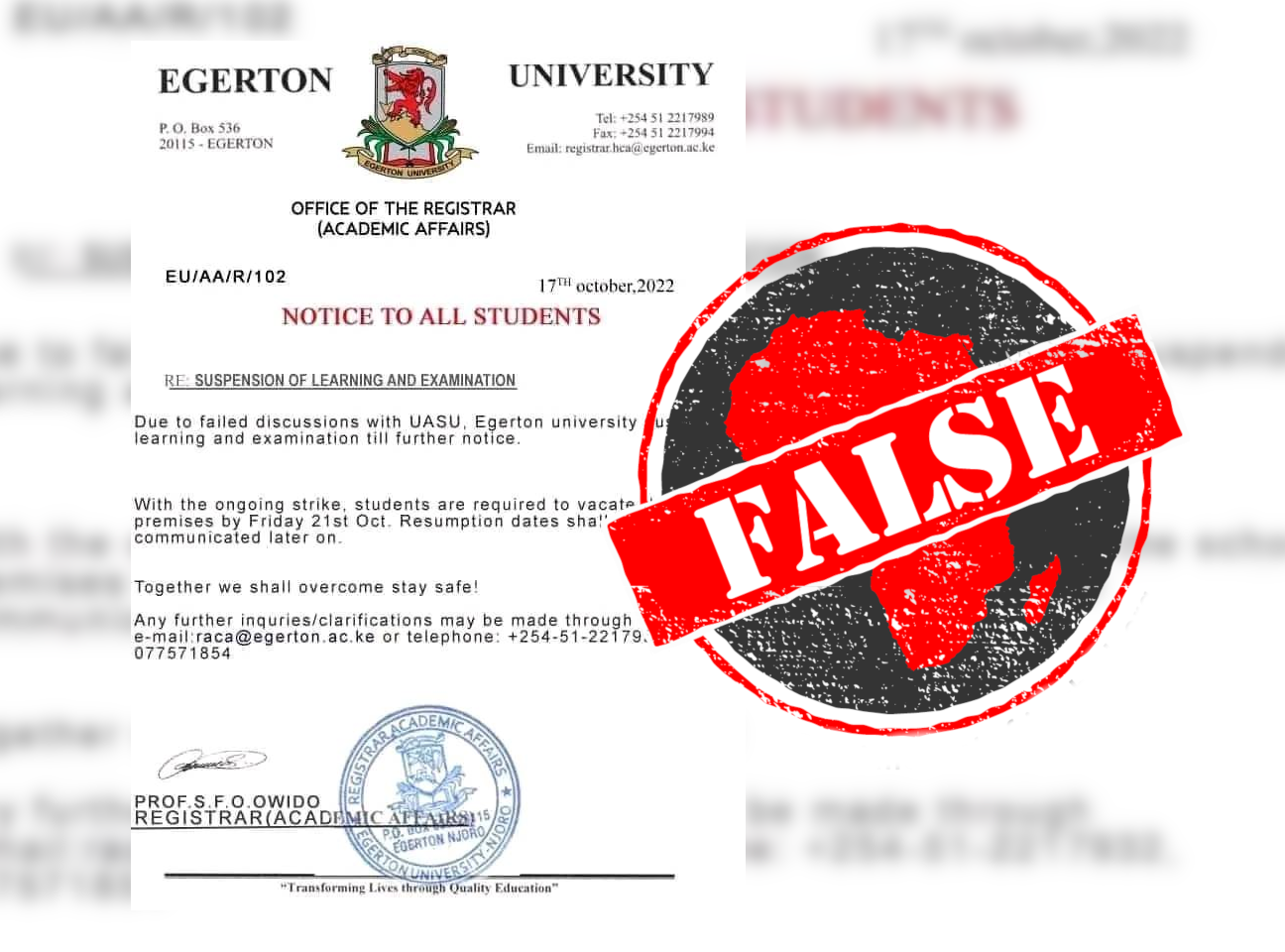IN SHORT: The university posted the badly written notice on Facebook and Twitter, with “FAKE” stamped across it in red.
A notice seemingly from Kenya’s Egerton University warns its students that teaching and exams have been suspended.
The notice, dated 17 October 2022, tells students to leave the university by 21 October.
“Due to failed discussions with UASU, Egerton university suspends learning and examination until further notice,” it reads.
UASU is the University Academic Staff Union.
The notice carries the varsity’s logo and the stamp of the registrar of academic affairs.
On 11 October Egerton University staff issued a seven day strike notice over pay arrears. On 17 October lecturers downed tools.
The notice has been posted on Facebook here, here, here, here, here, here and here. But is it real?

Notice fake
The notice has odd punctuation, as well as spelling and grammar errors. And inconsistencies in the fonts used and poor graphic quality are also suspicious.
It is indeed false. On its verified Twitter and Facebook pages, the university has warned students against the notice – simply by posting it with the word “FAKE” stamped across it in red.
Republish our content for free
For publishers: what to do if your post is rated false
A fact-checker has rated your Facebook or Instagram post as “false”, “altered”, “partly false” or “missing context”. This could have serious consequences. What do you do?
Click on our guide for the steps you should follow.
Publishers guideAfrica Check teams up with Facebook
Africa Check is a partner in Meta's third-party fact-checking programme to help stop the spread of false information on social media.
The content we rate as “false” will be downgraded on Facebook and Instagram. This means fewer people will see it.
You can also help identify false information on Facebook. This guide explains how.


Add new comment